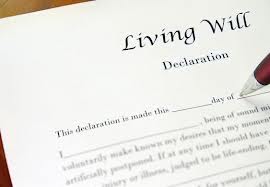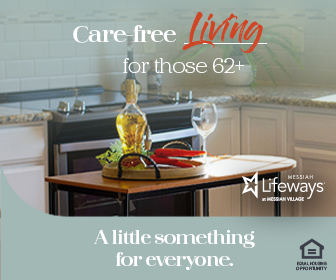Benjamin Franklin coined the phrase – “Nothing is certain [in life] except death and taxes” – and ironically these two certainties share consecutive days in April as a reminder of their permanency. We all know that in a few days on April 15 it is “Tax Day.” But very few people know that April 16 is National Healthcare Decisions Day. Although the 16th isn’t necessarily about death, it’s a reminder that we can provide directives on our own life and death. Healthcare decisions or directives can come in several forms including living wills and advance directives, Do Not Resuscitate (DNR) orders, and durable healthcare powers of attorney. Essentially they give healthcare providers and loved ones instruction and guidance on the type of medical care you want if you are unable to communicate your wishes directly.
Once an individual turns 18 they can draft an advance directive. Earlier exceptions include high school graduates and those that have married. But for most it is something that we put off for decades and, for others, it’s never done. Pennsylvania does not mandate that you have these documents, but for your peace of mind and for loved ones at your side, having these directives in place are crucial and will spare your spouse or children from having to make extremely difficult and emotional medical decisions on your behalf.
Other than not wanting to face reality and one’s own mortality, why do people choose not to create these directives? Let’s look at some popular myths versus the reality.
Myth “Once I create a living will or give a family member healthcare power of attorney, I no longer have a say in my care or cannot change my mind.”
Reality A living will only takes effect when the healthcare provider has it and you are deemed “incompetent” or lacking the capability to make a decision as determined by a physician. Also a healthcare POA doesn’t take effect until the same conclusion is met. You do still have a say as long as you can communicate it. You can also change your mind and amend those decisions.
Myth “It costs too much money or it’s too much of hassle to create these documents.”
Reality Many living wills and power of attorney documents are drawn up by attorneys. A significant cost may be involved and, for more comprehensive or complex situations, this may be unavoidable. However, there are a lot of documents available online that can be downloaded for free or at a much lower cost. You can also ask your doctor’s office, hospital or a care facility for a free copy of advance directives/living wills. In Pennsylvania, living wills/advance directives do not need notarized, but just need to be signed by two witnesses. Finally, this process should not be considered a “hassle” – it is your life and well-being at stake.
Myth “My family knows what heroic measures I want, they can decide for me.”
Reality Many times they do not know what your specific wishes are. Telling a family member, “just don’t put me on a ventilator,” isn’t enough direction because that is just one of many life saving measures they may have to decide on. Worse yet, you may have family members arguing about what they each think mom wants.
So as April 16 approaches, I strongly urge you to take the time to create these very important documents for yourself and your loved ones. It’s a good idea to consult an attorney and definitely review these measures with your doctor so you fully understand what antibiotics, blood products or surgery can do for you in a life or death situation. Once complete, make multiple copies for your physician and your loved ones. Also make sure the originals are easily accessible.
For more information and to access downloadable living wills/advance directives or a healthcare power of attorney, check out the following websites:
- National Healthcare Decisions Day website
- Caring Connections PA Advance Directive
- PA Department of Health website sample advance directive and durable healthcare power of attorney
- Medicare.gov






